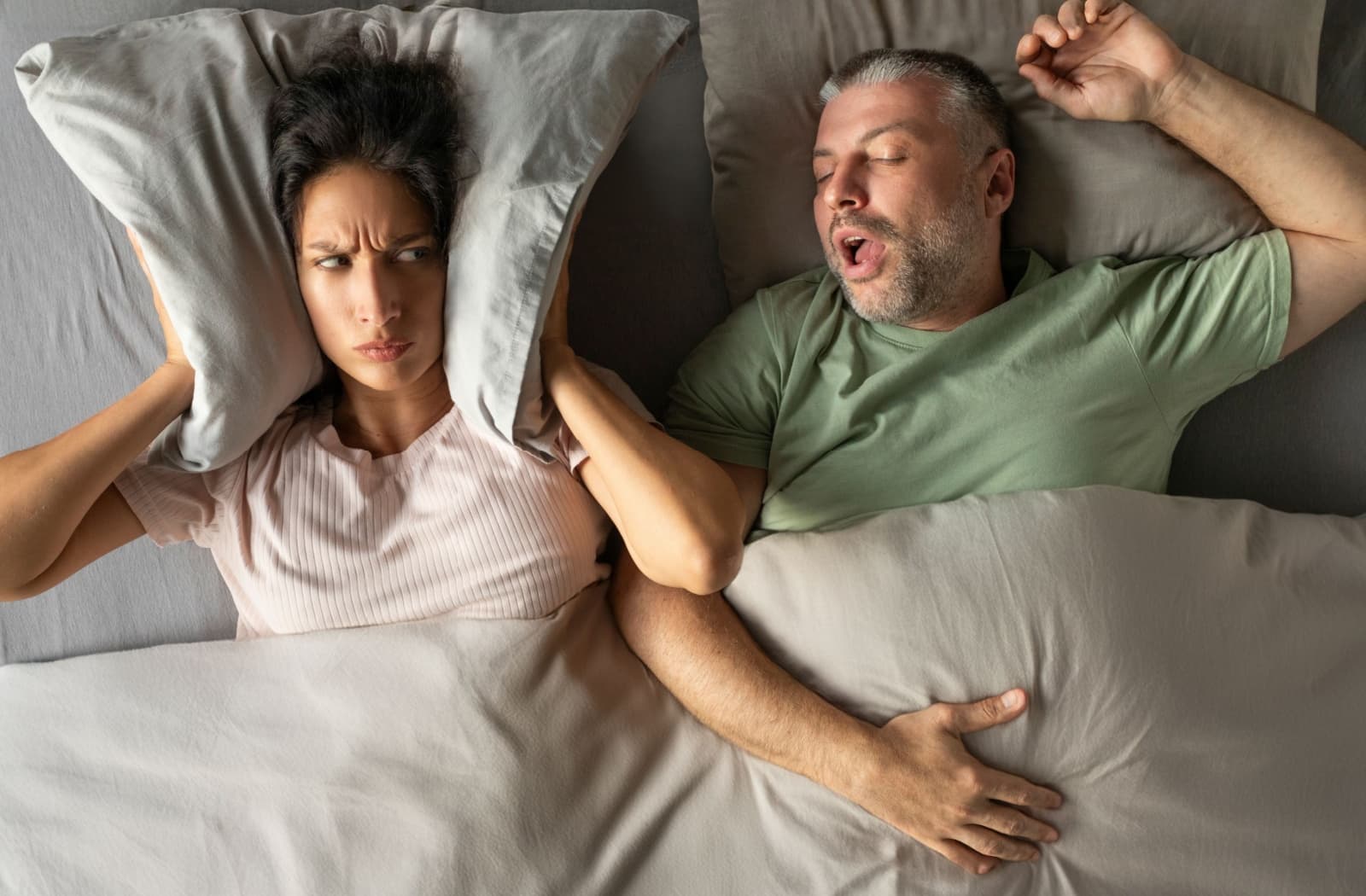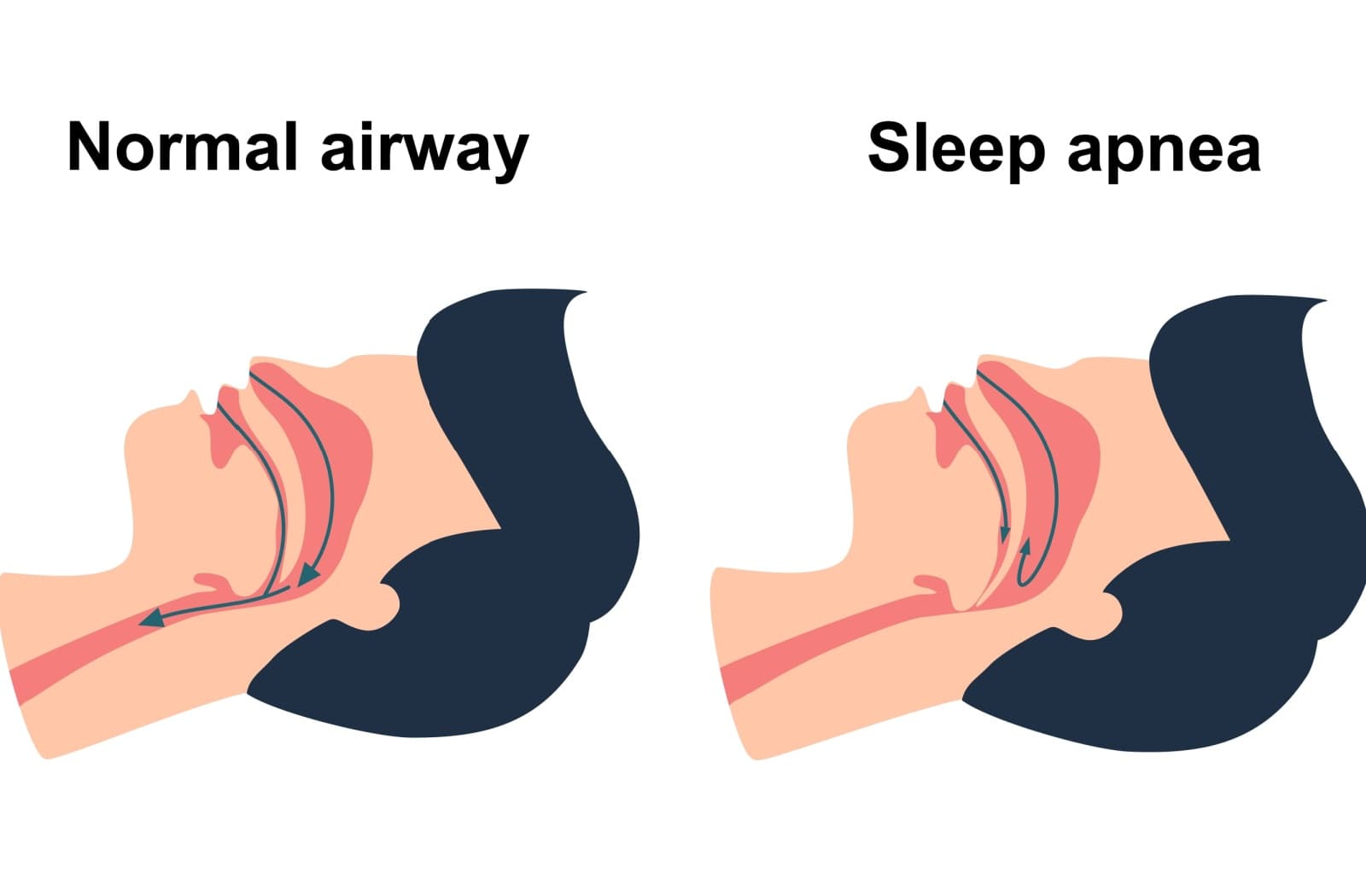Can You Have Sleep Apnea Without Snoring?

Sleep apnea, a condition that hinders your ability to breathe properly during sleep, is often misunderstood and underdiagnosed. When people hear “sleep apnea,” they usually picture loud snoring or interrupted sleep, but that’s only part of the story.
Loud snoring might be disruptive to those around you, but that's nothing compared to the seriousness of interrupted breathing. Snoring is only one of many symptoms of sleep apnea. It can exist in those who never make a sound while they sleep, and not all who snore have sleep apnea.
Our practice proudly offers Dental Sleep Medicine to address sleep apnea and related concerns. From custom oral appliances to addressing tongue-tie and TMJ issues, we're here to help you breathe and sleep better.
Unmasking Sleep Apnea: What You Need to Know
Sleep apnea is more serious than restless nights. It's a serious sleep disorder that disrupts your breathing while you sleep.
Let’s focus on your respiratory system. Disruptive breathing occurs when the upper airway becomes partially or completely blocked, limiting airflow to your lungs. These pauses in breathing can happen multiple times per hour, leading to decreased oxygen levels and fragmented sleep.
It's a condition that can affect anyone, including children. And, children aren't typically known for snoring.
Why Is Snoring Associated with Sleep Apnea?
Most people believe snoring is a hallmark symptom of sleep apnea, which isn't always the case. Snoring occurs when the soft tissues in the throat vibrate when airflow is restricted. Not all snoring is linked to sleep apnea, and not all people with sleep apnea snore.
This misconception stems from the fact that snoring is usually loud and noticeable, making it easy for those sleeping around you to identify. On the other hand, someone with sleep apnea who doesn't snore may go undiagnosed for years because the symptoms are more subtle.
Although snoring is a common sign of sleep apnea, it's not a universal symptom. People who don't snore but have sleep apnea may experience “silent” obstructions in their airways that still cause pauses in their breathing patterns.
Some other symptoms of sleep apnea include:
- Waking up gasping for breath
- Morning headaches
- Excessive daytime sleepiness
- Difficulty concentrating or memory issues
- Mood changes, such as increased irritability
- Restless sleep or frequent awakenings during the night
Consider these symptoms if you suspect sleep apnea, regardless of whether or not you snore.
Why Is Sleep Apnea a Concern?
Breathing is a sign of life. When breathing is consistently disrupted, it can be scary and seriously affect one’s overall health and well-being.
Oral Health
People with sleep apnea often experience oral concerns such as:
- Bruxism (teeth grinding) leads to enamel wear, tooth sensitivity, and jaw pain.
- Chronic mouth breathing, instead of nasal breathing (the correct way), can cause dry mouth, creating an environment where bacteria thrive, increasing the risk of cavities, gum disease, and bad breath.
- Aggravating Temporomandibular Joint (TMJ) disorders, since jaw strain heightens during interrupted sleep.

General Health Risks
Numerous health concerns are linked to sleep apnea, including high blood pressure, heart disease, and stroke. When oxygen levels drop repeatedly during sleep, this can significantly strain the cardiovascular system, increasing the risk of these serious conditions.
On top of that, it can disrupt your body's metabolism, raising the risk of developing Type 2 diabetes and other metabolic disorders. Over time, untreated sleep apnea can also weaken the immune system, leaving people more susceptible to illnesses.
Daytime Fatigue
People with sleep apnea often experience chronic fatigue, poor concentration, and memory difficulties because of disrupted sleep patterns. The constant fatigue can also affect mood, leading to irritability, anxiety, and even depression in some cases. This can seriously harm your overall quality of life and everyday safety.
How Can My Dentist Improve Sleep Apnea?
You might be surprised to learn that dentists play a significant role in diagnosing and managing sleep apnea. Fortunately, our dental team has the expertise in Dental Sleep Medicine and airway-focused care to help our patients identify signs of sleep-disordered breathing.
During routine dental exams, your dentist can observe signs of bruxism, such as worn-down teeth or jaw discomfort, as well as symptoms of dry mouth.
Oral Appliance Therapy
Oral appliances are custom-fitted devices worn during sleep to keep your airway open. These devices gently reposition the jaw or tongue, preventing tissue collapse and reducing airway obstructions. They are a fantastic alternative for people who cannot tolerate CPAP machines.
Identifying Airway Issues
Dentists trained in airway health can spot anatomical concerns contributing to sleep apnea. For example, a narrow airway, tongue-tie, or misaligned jaw are often linked to obstructive sleep apnea. Identifying these issues is the first step toward treatment.
Collaborative Care
Many dental clinics collaborate with other members of your healthcare team, including family doctors, sleep physicians, and other specialists, to provide comprehensive care. Your dentist may refer you for an at-home sleep study or partner with other professionals to verify the efficacy of their desired treatment plan.
Proactive Screening
If you mention symptoms like restless sleep or frequent headaches, your dentist might screen you for potential sleep disorders. Early detection can lead to prompt treatment and a better quality of life (and sleep).
Experience Sound Sleep
Experiencing noticeable interruptions in your breathing is a sign to visit your dentist. Even if you don't snore, you could still be living with undiagnosed sleep apnea.
If you suspect sleep apnea might be the root cause of your restless nights, schedule a visit with Wing Dental Centre. We're ready to help you take the next step toward better sleep and better health! Connect with our team and explore the benefits of Dental Sleep Medicine today.